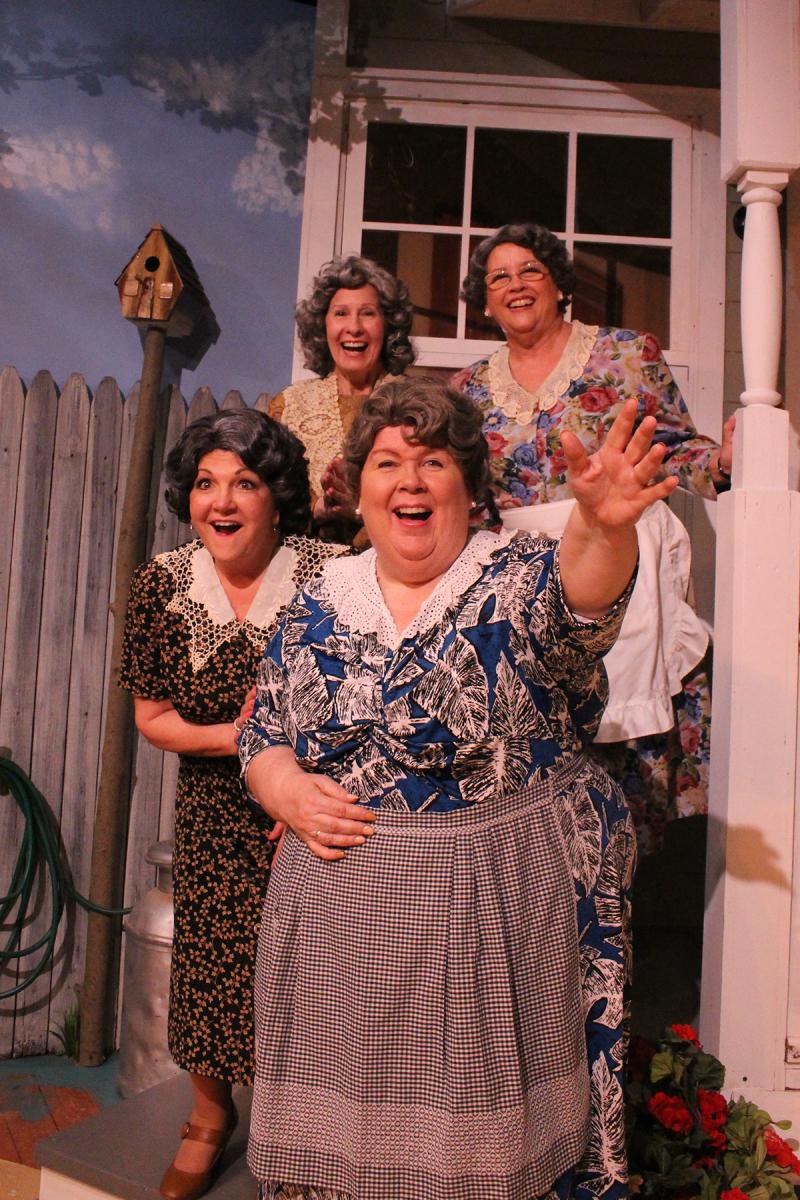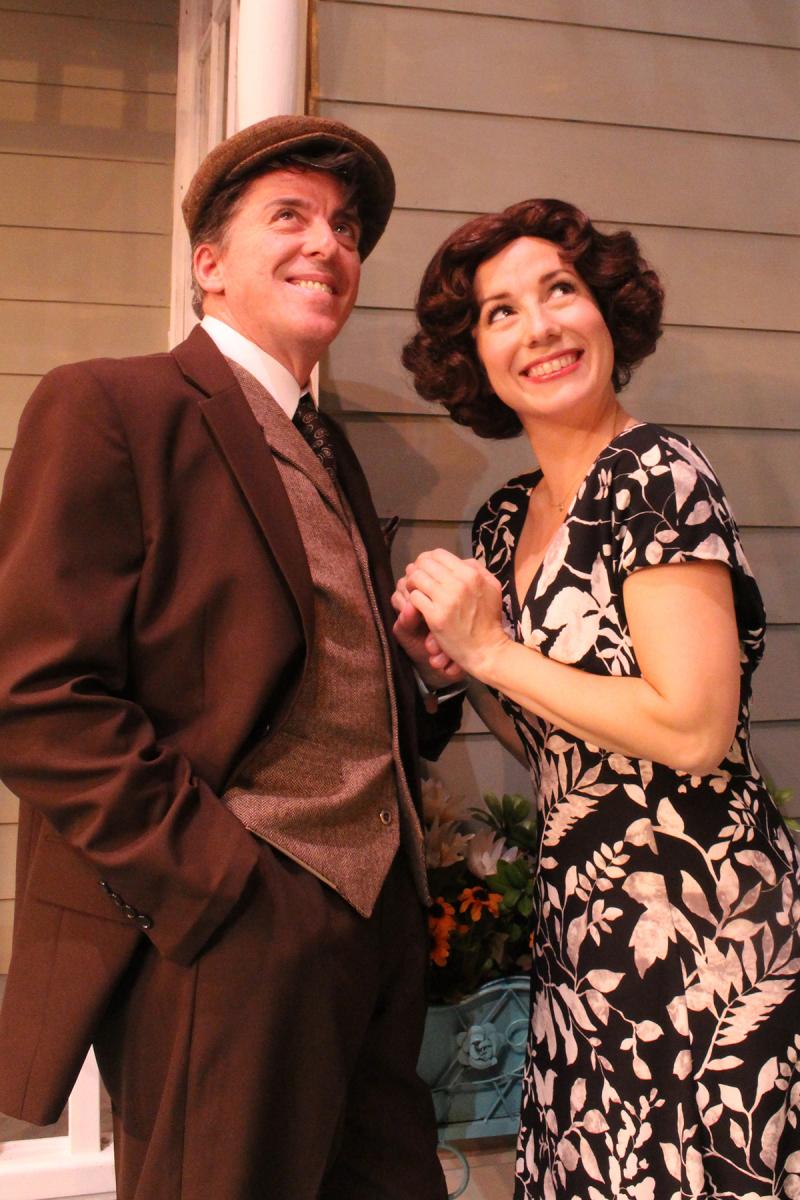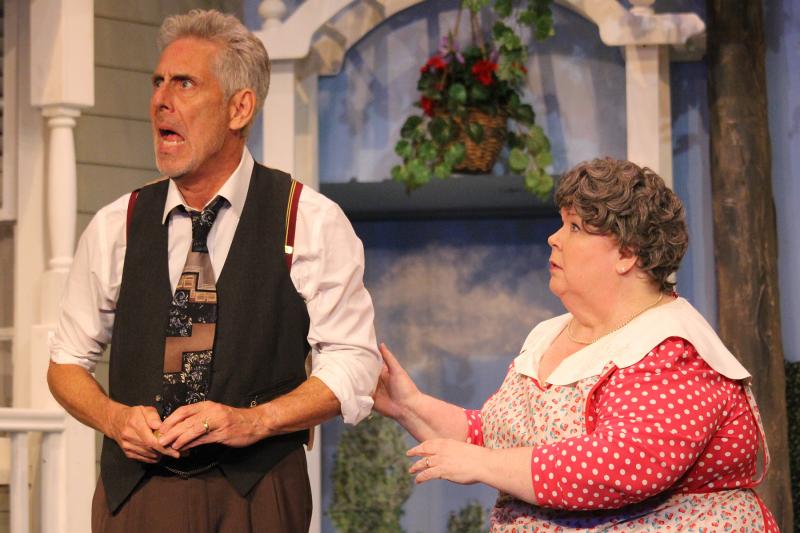Review: MORNING'S AT SEVEN at Elmwood Playhouse
 Morning's at Seven is a distinctly old-fashioned play with a gently moral tone, full of larger than life characters, plenty of laughs and several touching moments. Its central theme is however indistinct, focusing primarily on the aging characters internal squabbles.
Morning's at Seven is a distinctly old-fashioned play with a gently moral tone, full of larger than life characters, plenty of laughs and several touching moments. Its central theme is however indistinct, focusing primarily on the aging characters internal squabbles.
It's set in the backyard of two adjacent houses where three of the four Gibbs sisters live. Two of the sisters are married, the third is still single.
The set and costumes have a certain Norman Rockwell quality to them as these presumed retirees live their lives in and idyllic small Midwestern town. close proximity is critical to the story as the play unfolds, as the family members both enjoy the familial closeness of the situation and at the same time feel stifled by the lack of privacy. Despite the "Americana" theme of the setting, the play is really the story of a close (possibly too close) family struggling with past demons and the present which those demons have borne.
The entire family is impatiently awaiting the arrival of Homer Bolton (Tom Stratford), who is finally bringing his fiancée (of seven years), Myrtle (Ann Marie Goulding), home to meet the family. At the same time we meet Homer's father, Carl (Andrew Greenaway), who clearly has some mental and or emotional issues or "spells". He is deeply plagued by feelings of self-doubt, and fears that he has wasted his life. "spells" manifest themselves with Carl leaning his head against a tree in the garden.
Homer's mother, Ida (Margaret Young), is more timid and faint-heated than her sisters - who live across the yard. Cora Swanson (Maureen Lambrix) and Aaronetta Gibbs (Maryann Felice) live uncomfortably together under that same roof as Thor (Tom Lambrix) Cora's husband.

Homer arrives with his lovely fiancé and the entire family turns out. But we soon learn that Homer -despite his age (40) and his loooong courtship with Mytle (seven years), is still not sure about marriage.
His father has set aside a big house on the outskirts of town for Homer and Myrtle when they get married, but that becomes increasingly less likely as the story progresses. He can't seem to leave the nest, citing a need to care for his mother.
When Carl suddenly disappears, Homer decides to put the needs of Ida before the needs of Myrtle and calls off the engagement. That leaves the door open for Aunt Cora (who has had her eyes on the vacant house for some time) to jump into action. Cora has never loved the arrangement of living with husband and sister under the same roof and sees the empty house as a possible chance for her to finally live alone with her husband, without her sister Arry.
David Crampton (Scott Nangle), husband of fourth sister, Esther (Mara Mittleman Karg), feels he is intellectually superior to the rest, and regularly refers the them as "morons." Nangle plays David with a smug air of snobbery, delighting in little digs at them. When he arrives on the scene with Carl and announces that the two men plan to co-habitate and all hell breaks loose. All kinds of past indiscretions and recriminations surface.
During the more heated moments of the play, the depth of the characters and their underlying often repressed emotions and motivations are revealed. It is also, in these moments that the actor's accents had a habit of going a bit astray - often sounding more southern than mid-western.
The female characters in the play across the board are more robustly written than the men's roles but, in the end, it is the male characters who are the most transformed. And the fine cast that Elmwood has assembled delivers both laughs and tears.
Since its 1938 premier, the play has been revived three times on Broadway and also proven to be a popular choice for regional, and community theatre productions and it's easy to see why. It shows us an America that many miss and long for - a simpler, gentler time. But was it really? By showing us the problems that afflict every family and the ramifications and consequences of bad decisions, it speaks to timeless issues.
The tale of people, who in their twilight years, are finally beginning to question their lives and choosing to make some changes with the time they have left, ultimately presents a sense of hopefulness - no matter what your age.
-Peter Danish
Morning's at Seven
Written By Paul Osborn
Directed By Melinda Pinto
Friday May 10th 2019 - Saturday June 1st 2019
Reader Reviews

Videos

